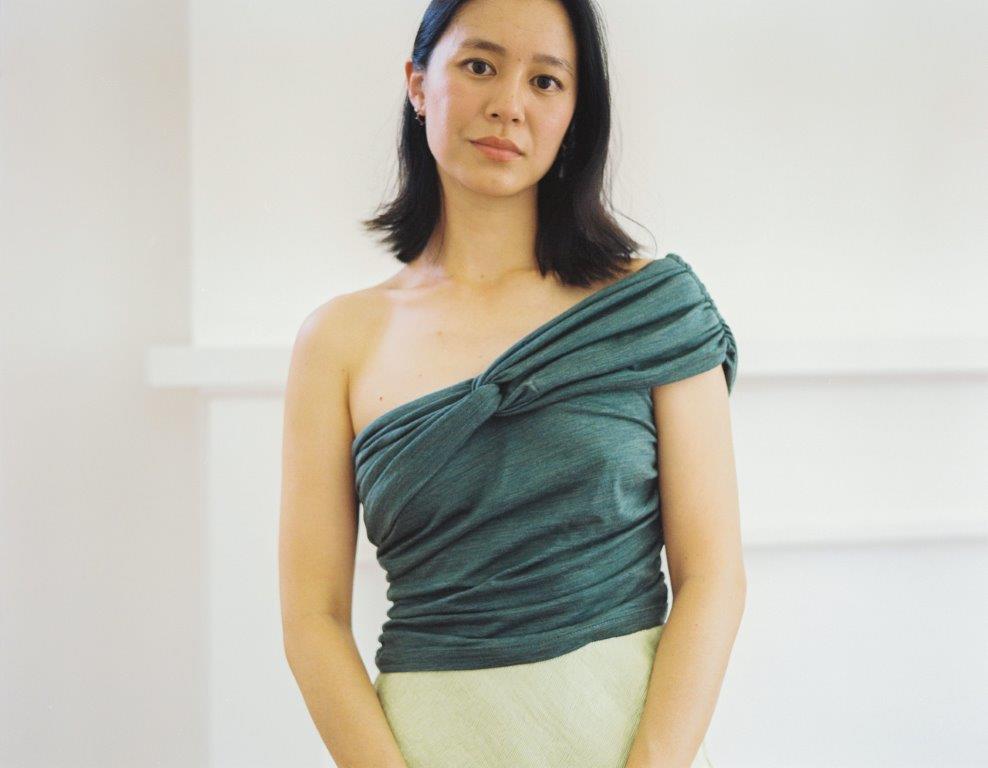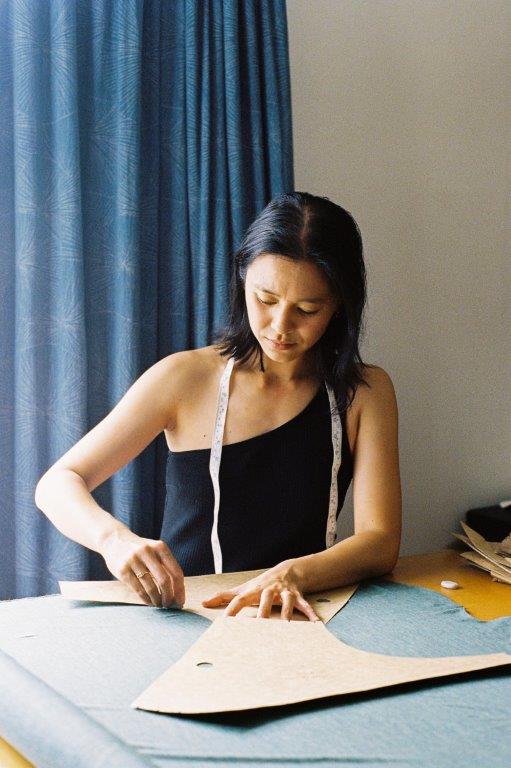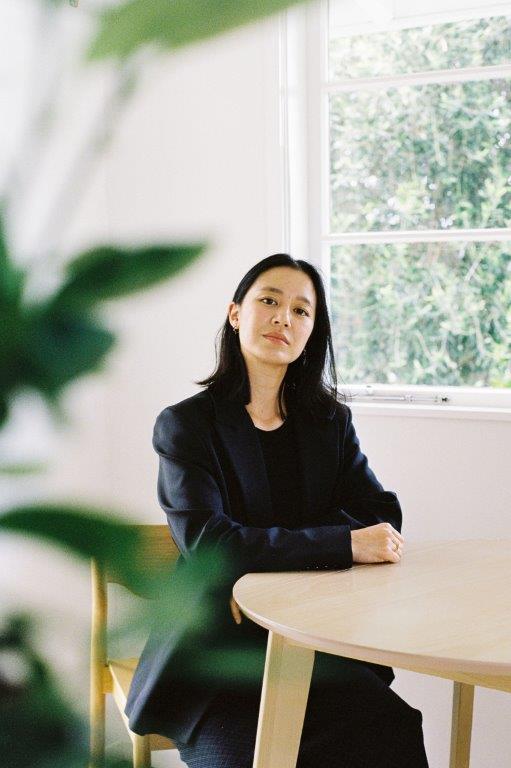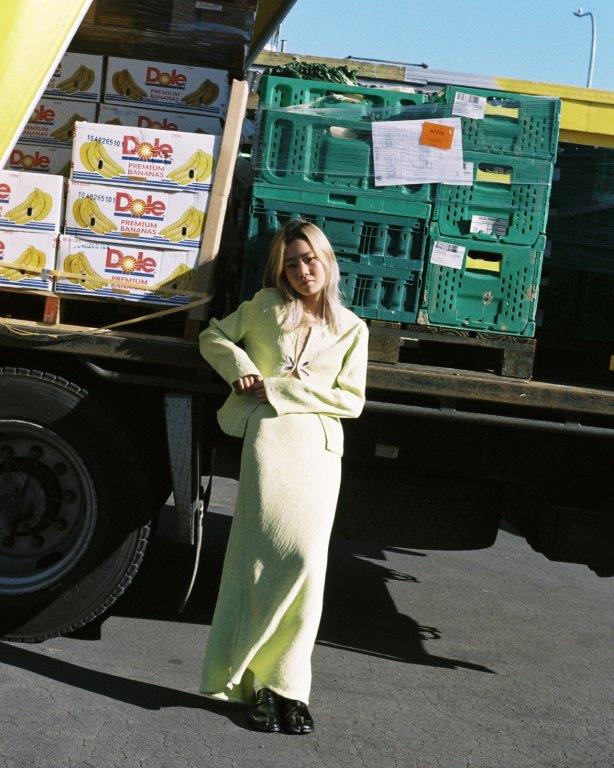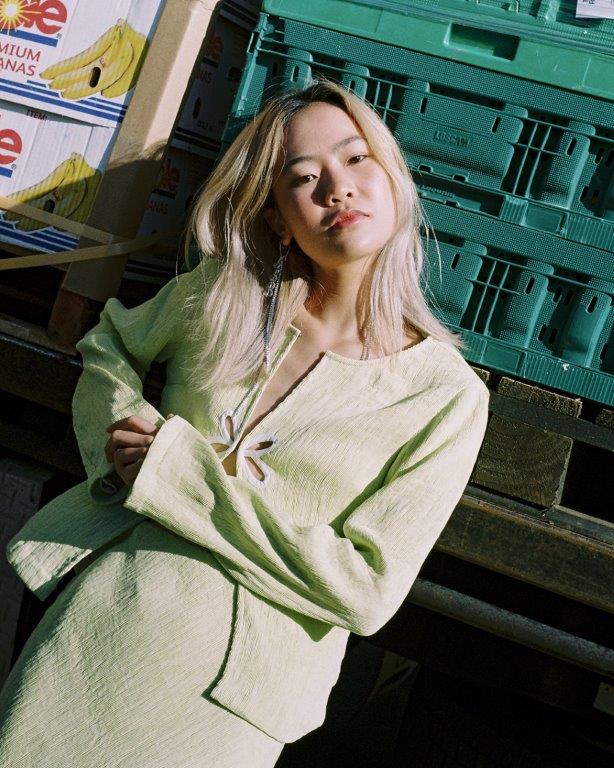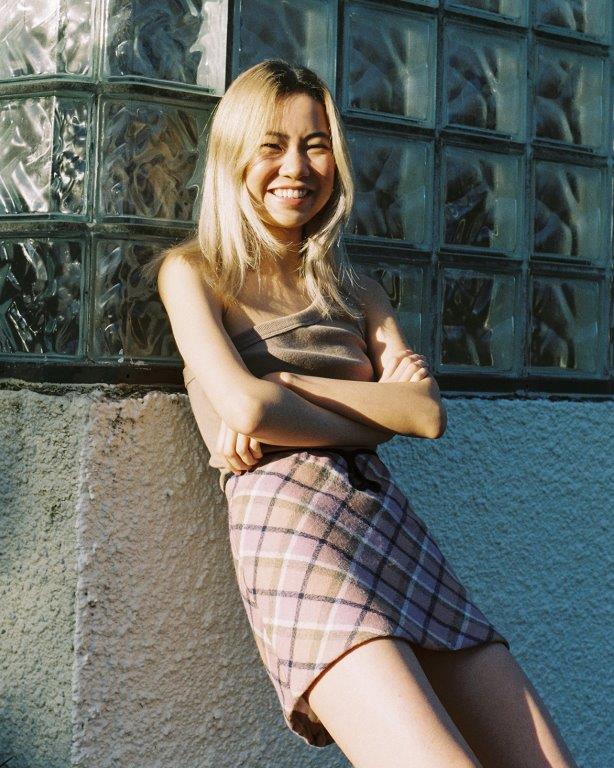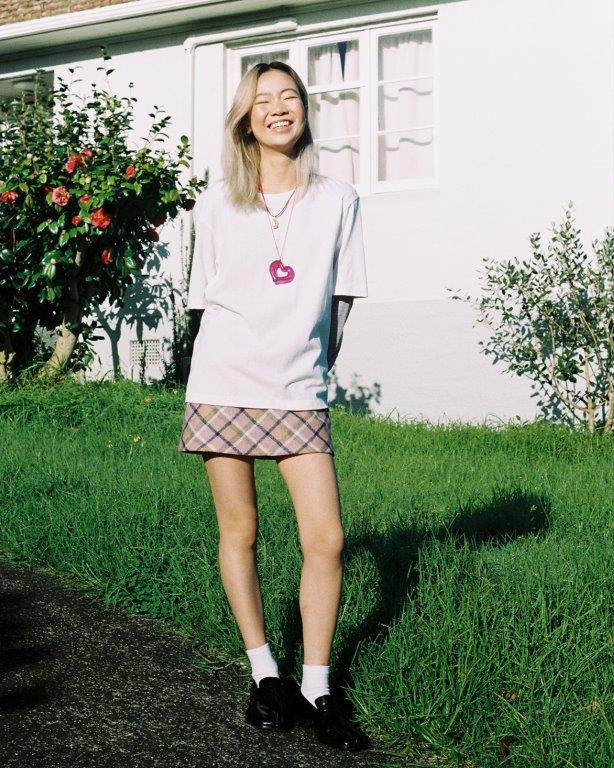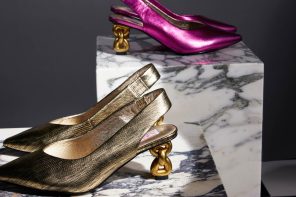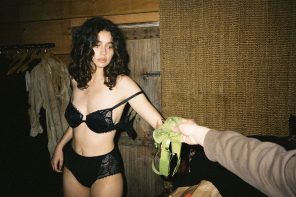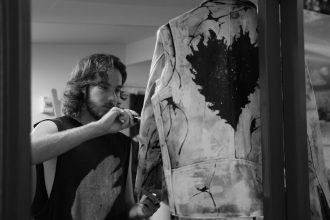As a second-generation Kiwi Chinese who was raised by a strict Tiger Mum, Frances Lowe's love of the arts was nurtured from a young age.
However, her love for fashion and clothing design did not evolve beyond an interest until Lowe finished school, where she went on to study architecture at university. During her studies, Lowe couldn't help but gravitate towards her sewing machine, figuring out how to make clothing through trial and error and a few lessons from her mother. She eventually started a blog to showcase her creations and even finished a pattern-making course.
In her final semester, Lowe scored an internship at Ruby, where she stayed on for six years working in various roles across their design and production departments. After moving to Shanghai, Lowe became a product developer at H&M.
"These two very disparate experiences taught me so much about myself, and influenced me heavily in eventually launching Loclaire," added Lowe.
Her experience living in Shanghai was particularly pivotal. While she worked in the bustling metropolitan city, Lowe witnessed the huge consumption and waste that occurred within the fashion industry, which prompted her to re-evaluate her own lifestyle and career choices.
"I started to feel very guilty about contributing to an industry that was directly contributing to the detriment of our planet. The more I learnt, the more I felt compelled to change and slow down."
In 2018, Lowe made the decision to step away from the fashion industry and move back home to start a business she would have control over. A year later, Loclaire was born.
For Lowe, one of the major perks of running her own fashion label is being able to take risks and adapt. During the Covid lockdowns, she decided to flip her entire business model in order to be 100 percent made-to-order.
"Although this was a huge leap of faith at the time, I have never looked back and I now feel that we are in our best place yet."
Lowe firmly believes her transition to made-to-order is a key step in the right direction and hopes other businesses do the same. Having a made-to-order business model allows designers to create size-inclusive clothing, minimise their waste, support local manufacturing industry and encourages consumers to purchase more slowly and consciously.
Lowe also takes a design-forward approach when crafting her garments, pivoting away from the basic and timeless pieces that tend to characterise sustainable fashion.
"These types of clothing are really important and I do see the value in them. However, for Loclaire I have become less interested in offering something that already exists," explained Lowe.
Instead, Loclaire's garments engage with the wearer more intimately through details like fun heart cut-outs or designs that can be worn in several different ways.
"This sort of emotional connection is so important for loving our clothes, and ultimately, keeping them in our wardrobe for longer."
As Loclaire is 100 percent made-to-order, Lowe does not adhere to the traditional seasonal collection timeline.
"I believe this constant pressure to create new clothing every three months is so unhealthy and unsustainable for both the brand and customer, especially in the lens of social media."
Instead, Lowe focuses on investing in her designs and allowing her creativity to come to her organically, only putting out new styles roughly twice a year.
She is not only proud that Loclaire is made-to-order, but also that her label advocates for honest and transparent pricing.
"As every piece we make already has a home, we don't hold excess stock and don't need to rely on seasonal sales or the extra mark-up that buffers the discounting needed to clear stock," shared Lowe.
"The only fair way our community could make well-informed purchasing decisions to show them where every cent was spent. We publish the full breakdown of costs online across our entire MTO offering - from fabric, to sewing, to marketing and packaging, as well as our margin which makes up the final retail price."
Lowe is passionate about creating a movement towards slow, locally-made and made-to-order fashion. Looking ahead, she hopes to evolve Loclaire beyond just a fashion label and into something that engages her community and promotes her mission, such as through hosting collaborations, talks and workshops.


